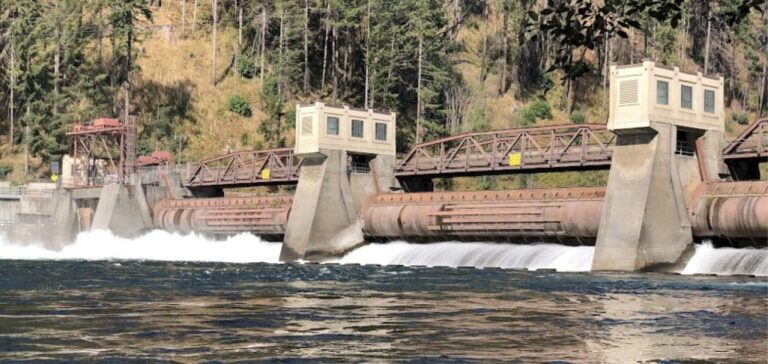In Leaburg, delegates from the Eugene Water & Electric Board (EWEB) support the decommissioning of a hydroelectric project.
Withdrawal of a project
In Leaburg, U.S., EWEB delegates support stopping a 15.9MW hydroelectric project. Indeed, erosion and seismic risks on portions of the canal forced EWEB to stop the project in 2018. Since then, EWEB has been evaluating the possibility of repairs or decommissioning the 90-year-old project.
Investments in canal repairs would not be cost-effective. As a result, EWEB Executive Director Frank Lawson is recommending a permanent halt to power generation at the Leaburg Hydroelectric Project. EWEB is asking its supplier, the Bonneville Power Administration (BPA), to replace the lost energy by shutting down the project.
Currently, BPA provides EWEB with approximately 80% of its energy. EWEB wants the alternative energy at the cost reserved for electric utilities, which is $33/MWh. The project in Leaburg historically generated about 4% of EWEB’s electricity needs.
A price increase
However, estimates for restoring Leaburg’s generation call for $117/MWh of electricity. Furthermore, the abandonment of the hydroelectric project would improve the quality of the water and the fishery reserve. Executive Director Frank Lawson of EWEB, states:
“The permanent cessation of power generation at the Leaburg Hydroelectric Project will result in the removal of the dam, restoring flow to the McKenzie River and eliminating the man-made Leaburg Lake behind the dam.”
All of the alternatives studied by EWEB would require capital investments of more than $150 million. This would result in substantial rate increases. The recommended solution is the least expensive.
EWEB, in this alternative, projects a 9% to 10% increase in electricity rates between 2023 and 2040. EWEB provides an implementation and action plan for decommissioning the Leaburg Hydroelectric Project. Finally, deconstruction of the dam is not expected to begin for another 10 years.






















